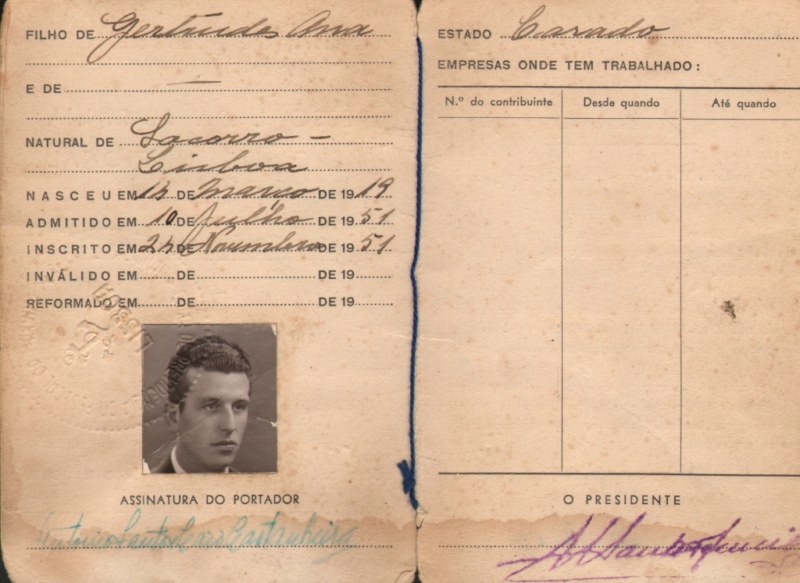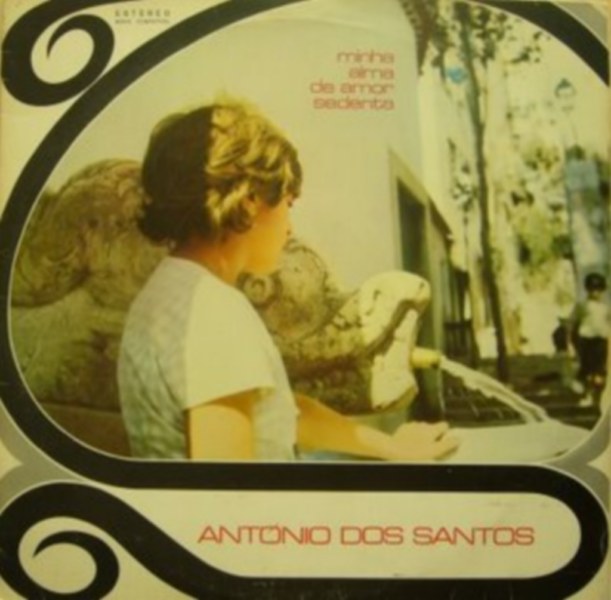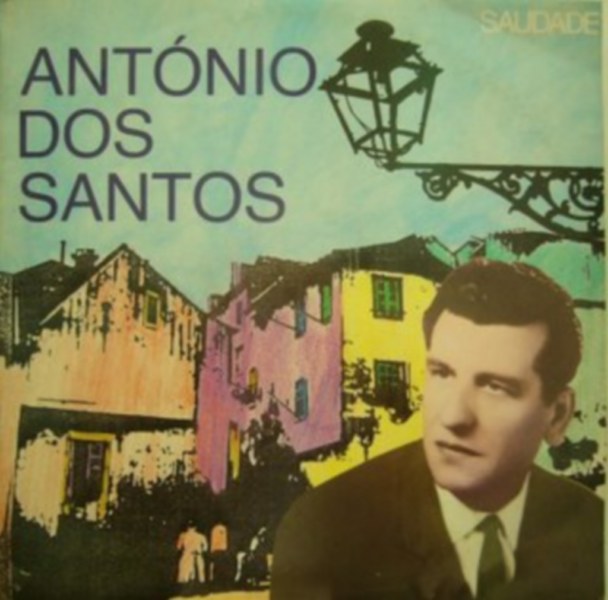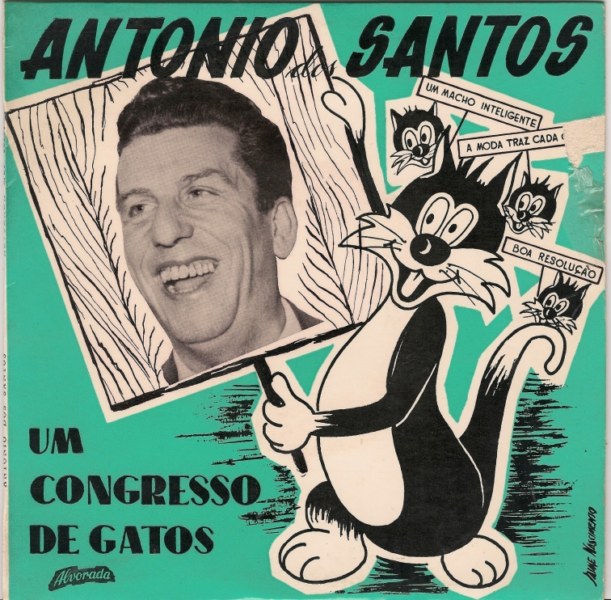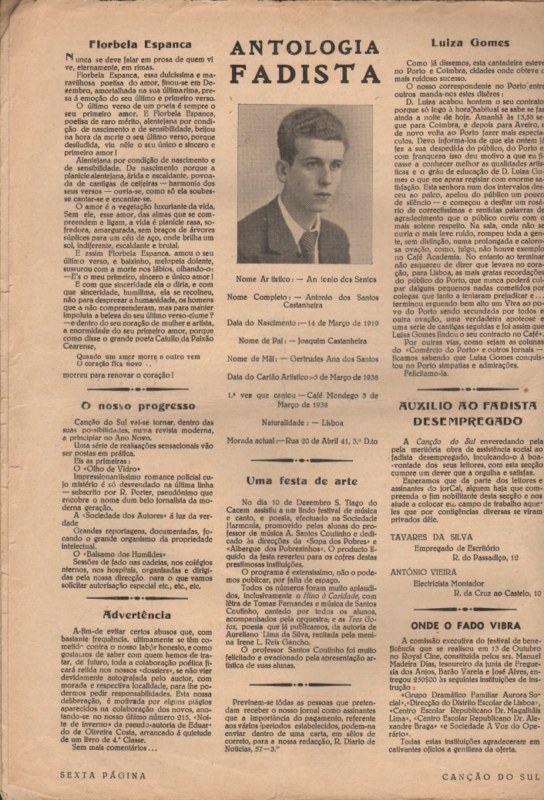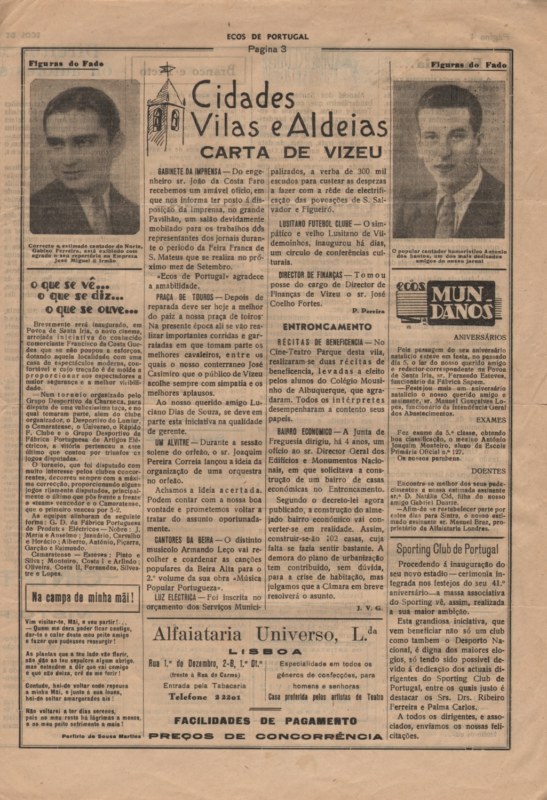Know more:
António dos Santos
(N. 14 March, 1919 - M. 18 September, 1993)António dos Santos Caio Castanheira was born in Lisbon on the 14 March 1919, adopting the artistic name António dos Santos.
Son of Joaquim Castanheira and Gertrudes Ana dos Santos, António dos Santos was raised by his mother and grandmother on her mother’s side. He lived at Rua 20 de Abril (currently called Rua de São Lázaro), 41-3º Dto, in Lisbon. His parents had a unique pathway: they had a relationship when they were very young, of which young António was born, but his father married another woman. When António was already in his twenties, they met again and decided to get married.
Being a sailor in the Merchant Navy since he was 25, António spent a long time abroad, travelling all over the world. According to his wife in only one voyage he was away for two years in the United States of America. But he never stopped singing.
He began his career as an amateur Fado singer at 15 and his debut as a professional took place on the 3 March 1938 at Café Mondego, in Lisbon.
He married Julieta Rebelo Martins (Castanheira) on the 12 August 1943 and moved to the district of Alfama, where he lived at number 9, Beco da Bicha.
He was one of the artists who sang for free at the 1957 Great Fado Contest, organised by A Voz de Portugal (cf. “A Voz Portugal” 31 August 1957)
For more than 20 years he sang jesting fado, a genre of his preference.
In the mid 1950’s however he opened the restaurant O Cantinho do António, at Beco do Azinhal, in Alfama, where he developed a different fado genre. He became known as the "Baladeiro de Alfama", mainly after his participation in the television Zip Zip programme (in the late 1960’s), recorded at Teatro Vilarett in Lisbon, written by Carlos Cruz, Raul Solnado and Fialho Gouveia.
“Cantinho do António” became very famous as a restaurant (his wife was the cook) and a fado house. Many celebrities of Portugal’s social and artistic jet-set visited the place.
After the 25 April 1974, he sold the restaurant, though against his wife’s will.
António dos Santos was often invited to travel abroad, especially to Brazil, but he never accepted. According to his wife “he was afraid to fly” and never managed to solve this “small” problem.
He left several records, but only the first in the jesting style.
He died on the 18 September 1993, at 74. A month before (12 August), he had celebrated the 50th anniversary of his marriage.
He received a RTP Award. His heritage was donated to the Casa do Fado e da Guitarra Portuguesa.
Source:
“Canção do Sul”, 16 de Dezembro de 1938;
“Guitarra de Portugal”, 15 de Setembro de 1945;
“Guitarra de Portugal”, 25 de Dezembro de 1945.
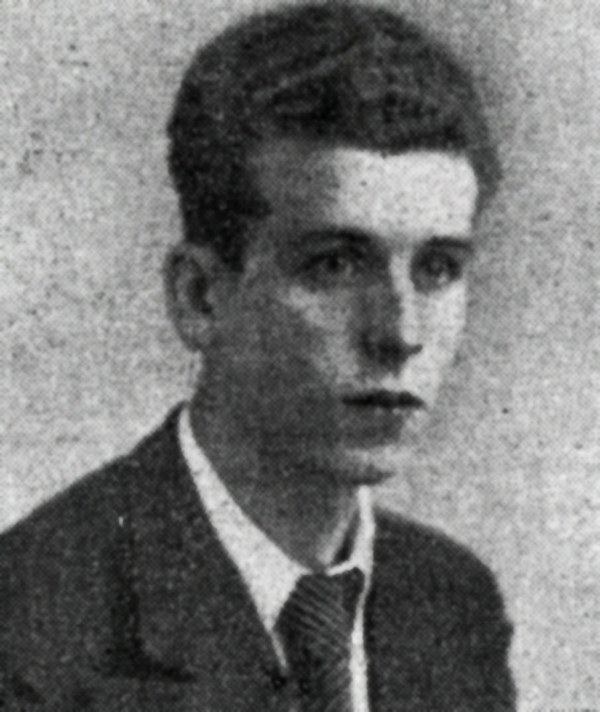
António dos Santos, s/d.
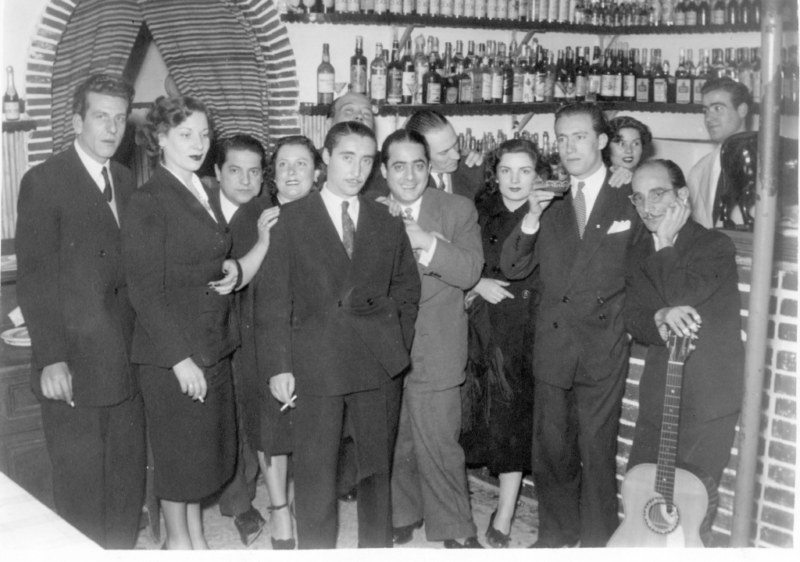
António dos Santos, António Bessa, Maria da Conceição, Francisco Carvalhinho, Filipe Pinto, Teresa Nunes e NIcolau Neves Mãe preta, s/d.
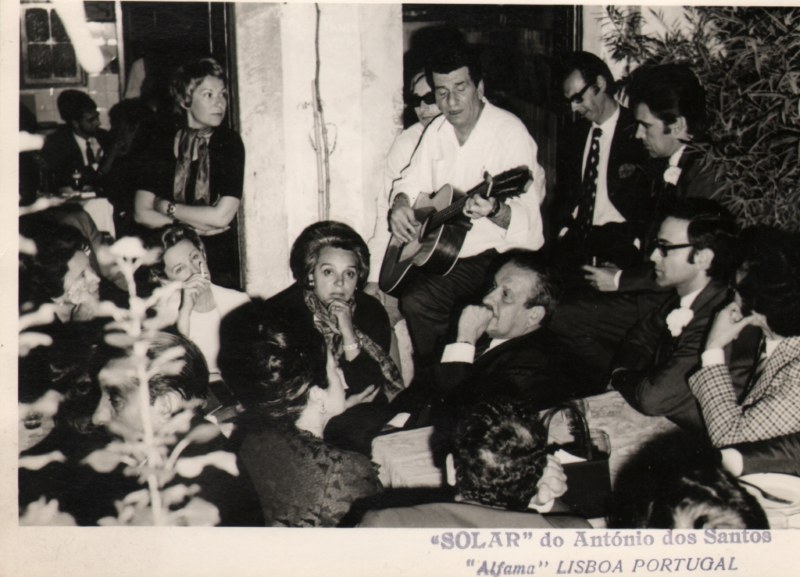
António dos Santos Solar do António dos Santos, s/d.
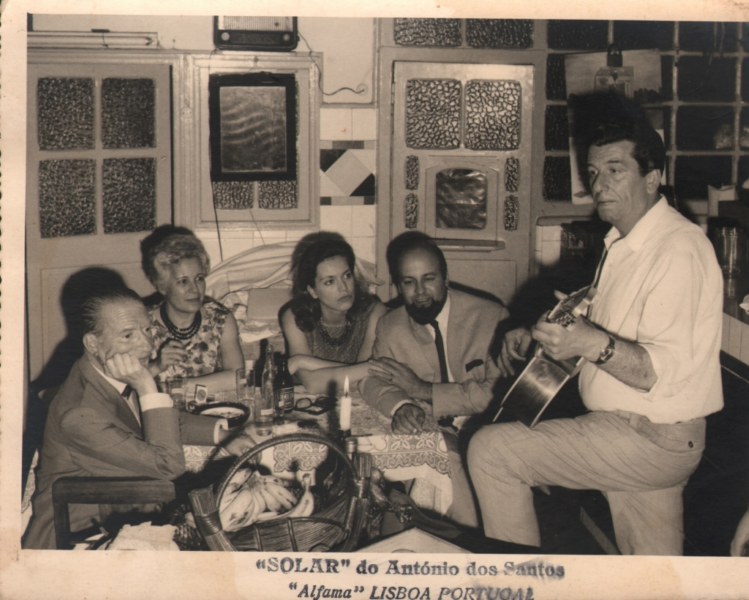
António dos Santos Solar do António dos Santos, s/d.
-
Minha Alma de Amor Sedenta António dos Santos (António dos Santos, António Barreto / António dos Santos)
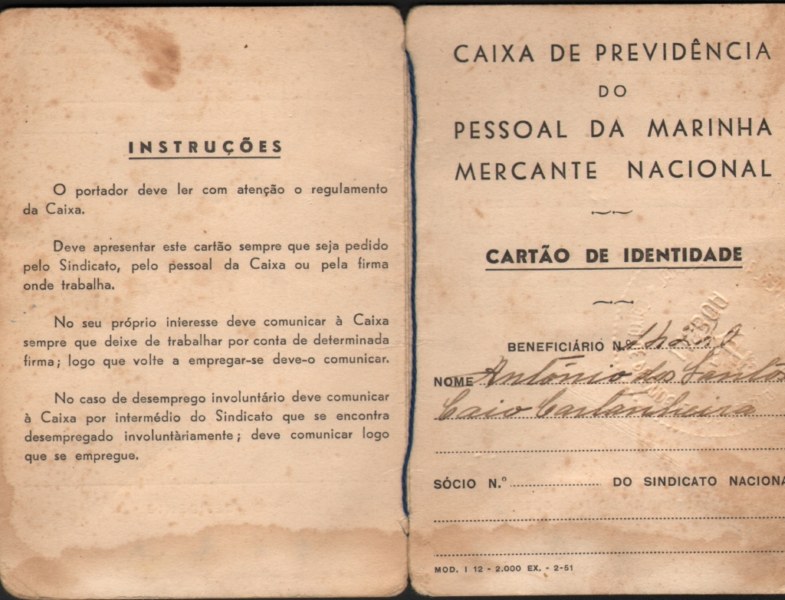
Cartão Caixa de Previdência | Social Welfare Identity Card de António dos Santos, 1951
